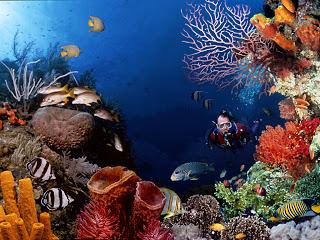
Bryan Cunningham believes the scuba diving travel business is missing the dive boat when it comes to serving its customers.
After working as a scuba instructor, he is now a scuba travel specialist for Travelpath, a Burlington, Ontario-based travel agency.
With more than 10,000 dives to his credit, having run dive shops and instructed in the Caribbean for 12 years, as well as in the Middle East for six years, he brings a first-hand perspective to the job.
“I have personal contact with the owners of dive shops and I have most of them on Skype. That means I can ask for extra things,” he says, citing nitrox and larger tanks as examples. “I can ask the manager if he has this available. Although he may not have the big tanks he may have a sister operation that has them. They give better service to a travel agent than an individual. They stand to lose a lot more business if they let a travel agent down.”
The core principle of his business is customizing a dive vacation to the client’s needs and that of the diver’s family.
“Eighty per cent of people don’t want to dive for the whole holiday. Or, if the husband dives and wife doesn’t, I tailor it to what they want. You need to know what else is available. If a wife is an outdoors person, Belize has an outdoor jungle facility. If she likes shopping and casinos, then maybe Nassau is better. It depends on what the non-divers want to do.”
Bryan also books dives for cruise ship passengers, pointing out that they will pay 30 per cent more if they go through the cruise line. “We can book a dive for every (cruise ship) stop. You don’t have to worry about currency. The shops I work with are used to working with cruise ships.
For those planning on combining diving with a cruise vacation it is important to know the diving opportunities in the ports the ship will visit. Some aren’t good for diving, while others stop at all the good dive spots. Also, adds Bryan, you need to know the location of the port with respect to diving. For instance, sometimes the best diving is on the opposite side of an island from where the ship docks.
Some ports have better transportation service for cruise ships than others. In St. Lucia, says Bryan, a dive operator has a separate boat just to pick up divers travelling on cruise ships. Some have a separate bus for the same purpose.
Another problem Bryan says he can help divers avoid is choosing the wrong hotel. A hotel on an island that is distant from the port where the best diving is found could lead to a costly taxi ride every time they dive.
Choosing a dive site itself depends on the diver’s interests. That could range from diving ship wrecks, to coral reefs and marine life. Availability of the latter can vary with the time of year because some species, such as whale sharks, migrate.
In terms of coral reefs, divers may have their preferences. For instance, the hard corals of the Indian Ocean are more colourful, while the soft corals found in the waters of the Caribbean look blander. “Both are nice in their own way, but different,” says Bryan.
“I have dive destinations virtually anywhere you want to go. Tell me the type you want and I will find them. I have been to 32 Caribbean islands and haven’t seen half the Caribbean, but I’ve seen a lot more than any other travel agent.”
For more details, see this website: http://www.scubadestinationdeals.com/
Kathy Dowsett
www.kirkscubagear.com